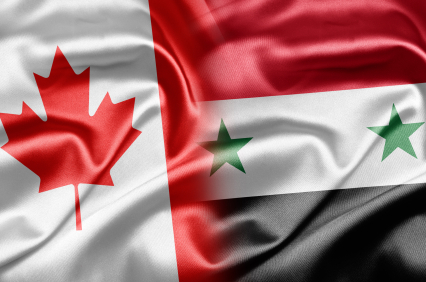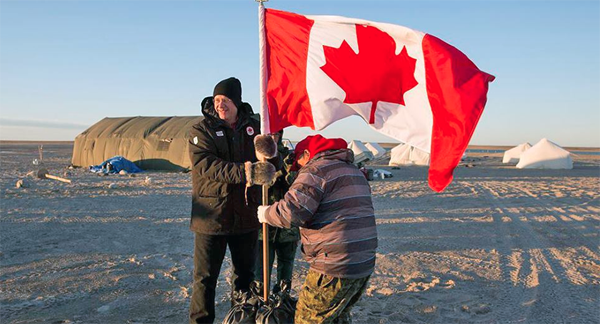As the international community lumbers towards a diplomatic solution to the Syrian civil war, the humanitarian crisis is becoming increasingly desperate. With an estimated 5,000 Syrians fleeing their homes daily to seek refuge in Jordan, Turkey, Lebanon and Iraq, the total number of refugees has climbed to approximately 2 million. The flow of refugees is straining the economies and social fabric of these neighboring countries and is threatening to push them to the point of collapse. At this critical stage, Western nations must provide humanitarian relief beyond financial aid as part of a morally defensible response to the crisis. Put simply, nations such as Canada must open their borders. But is Canada prepared to do so?
Canada’s Refugee Policies
On the heels of announcing Canada’s decision to abstain from military participation in any Western air strikes on Syria, Foreign Affairs Minister John Baird promised that Canada would increase its aid to Syrians still living in the war torn country, as well as refugees. By this, Baird meant Canada would increase its financial aid. And yet, the $203.5 million committed to humanitarian assistance in Syria and neighboring countries cannot overshadow the pledge to resettle only 1,300 Syrian refugees. Especially against the backdrop of the open-door policy of countries like Sweden, Canada’s narrow and tightening policies on refugees aimed at reducing an “economic burden” have received greater domestic and international attention.
[captionpix align=”left” theme=”elegant” width=”300″ imgsrc=”http://upload.wikimedia.org/wikipedia/commons/a/a4/Syrian_refugee_center_with_group_in_center.jpg
” captiontext=”Syrian Refugee Camp”]
To recount: beginning in 2008 the Conservative government began reforming the refugee system. Ottawa created the category of “irregular arrivals” which allows for the arrest and detention of such persons for up to a year, a list of “safe countries” which designates nations capable of protecting their citizens and thus unqualified for refugee status and finally, health benefits for claimants were cut. This tough shift in policy has made it hard for refugees to make Canada their home. New and suggested policies threaten to make it even harder. Other proposed legislation to come into effect over the next two years include: limiting the number of refugees with serious health problems and shifting from the global resettlement program to an exclusive one, which would only offer asylum to refugees from three to five countries.
Why is this important? Why make the distinction between providing financial aid and accepting refugees? One obvious, but no less powerful, answer is that it is a responsibility of nations by virtue of our shared humanity to protect the vulnerable seeking security. Another angle however, will be discussed and argued. Canada must extend asylum to refugees to remain a respected member of the international community.
Canada’s International Commitments
Canada has always been a strong advocate for the robust protection and respect of human rights in the global community. In 1947-1948, Canadian John Humphrey played a central role in crafting the Universal Declaration of Human Rights, which was adopted by the UN General Assembly on December 10, 1948. On June 4, 1969, Canada signed the Convention Relating to the Status of Refugees, which defines refugees and their rights and outlines the responsibilities of nations providing asylum. Alongside other treaties, the act of signing and ratifying these two human rights treaties represents Canada’s active commitment to pursuing the common good in the global arena by focusing on the rights and needs of all persons regardless of nation.
Therefore, the new limitations and restrictions imbedded in Canada’s refugee policies threaten to undermine the spirit of those international commitments. More importantly, cherry-picking refugees with an eye to reducing the economic footprint of humanitarianism will not go unnoticed. Canada cannot uphold international agreements selectively without threatening its international reputation. Ultimately, Canada must prove that it is not only by words but also in action that it defends human rights. If it does not demonstrate a willingness to help shoulder the Syrian refugee crisis, it challenges its own status as a responsible member of the international community.



